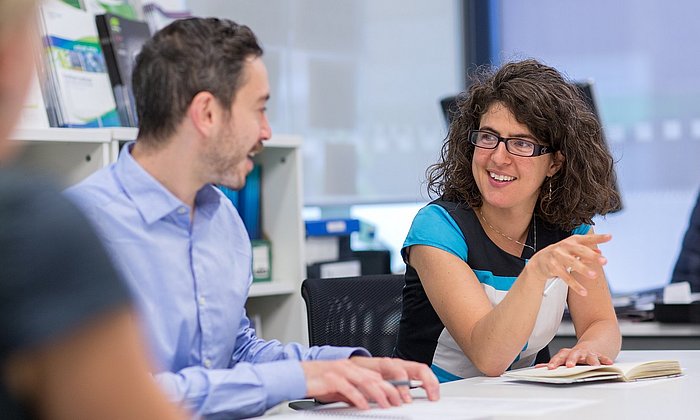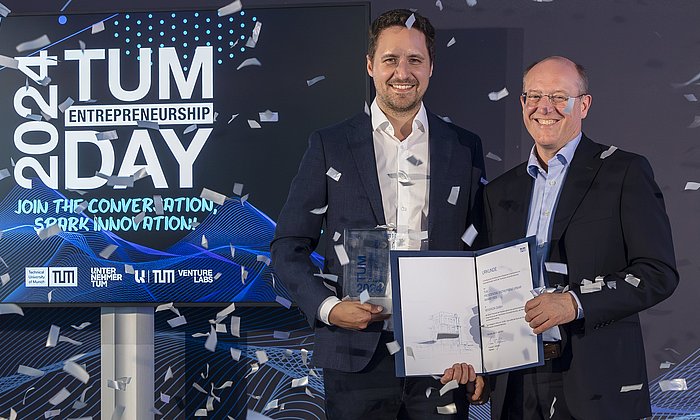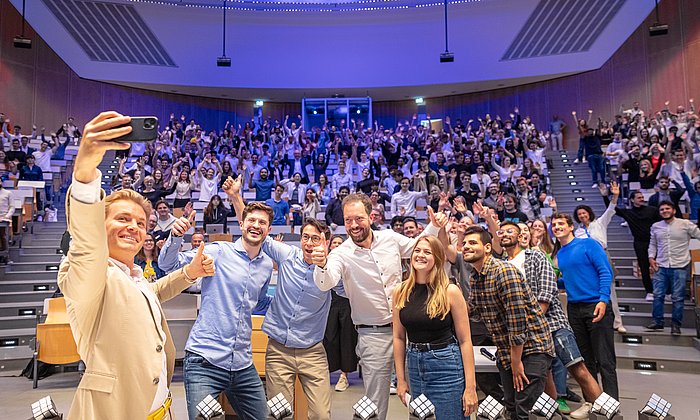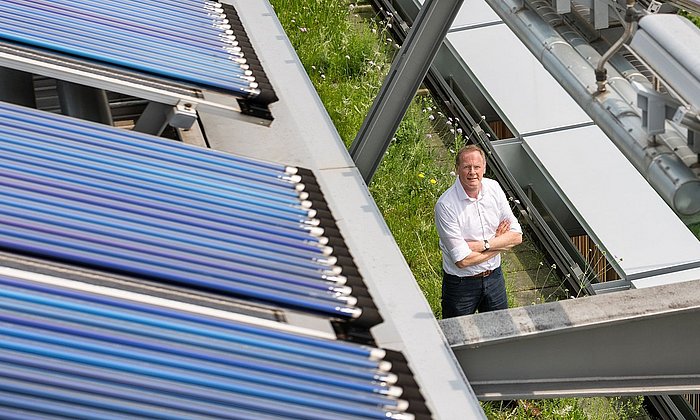Global discourse series “One Topic, One Loop“: Christine Nellemann
Sustainability is about more than CO2 reduction
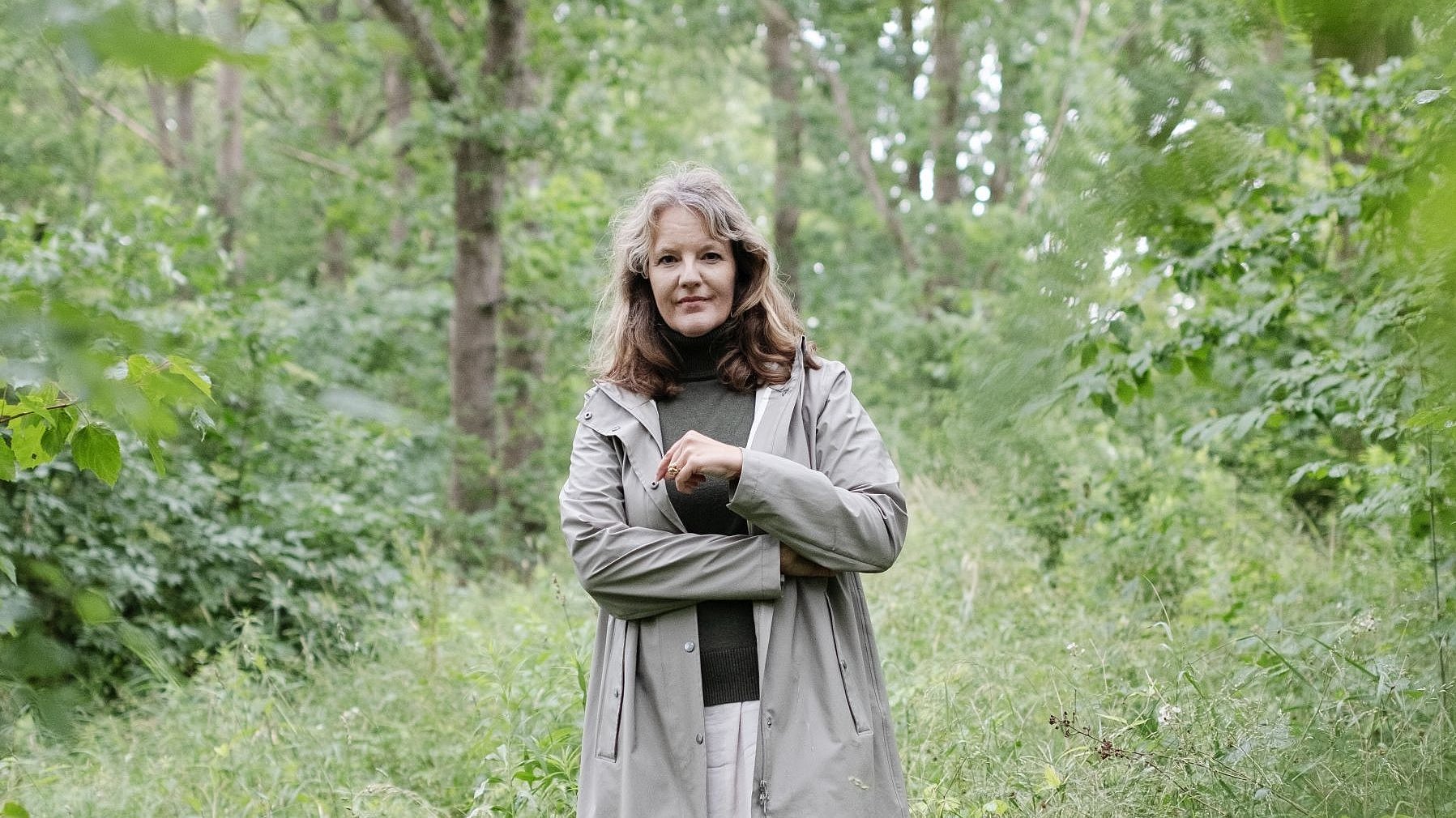
As an elite technical university driving sustainable change in society, it’s important to us that our campus also reflects that purpose and inspires change. That’s why we make our facilities available as living laboratories. This means that students, researchers and relevant stakeholders such as authorities and businesses can use DTU’s facilities to develop and test new sustainable technologies. For example, at DTU’s energy test center PowerLab, one can test everything from electric charging stations to control systems for future renewable energy systems. Meanwhile, on our Lyngby campus, we want to reduce the climate impact by installing a heat pump that can cover 30% of DTU’s annual heat demand.
For us, allowing space for this kind of experimental innovation promotes sustainability as the driving force of the university. The aim is to motivate us within the university and inspire the surrounding society to follow suit. To be successful, however, we need to be transparent about what we mean when we say something is sustainable.
That’s why DTU has established the Center for Absolute Sustainability: Absolute sustainability means using nature’s tolerance limits as a measure of how much we can allow our products and actions to impact the climate. The center’s researchers are working with industry not only to develop concrete models for calculating the absolute sustainability of products, but also come up with technological solutions that can make a real difference to overall CO2 emissions.
Environmentally friendly and inclusive infrastructure
The physical infrastructure on our campus is undergoing big changes. Currently, a light rail line is being constructed on our campus in Lyngby in the north of Copenhagen, which DTU has used as an opportunity to expand and improve the cycling infrastructure. In this context, DTU is making the campus available for testing shared electric bicycles, which will provide important insights to promote green mobility. The goal is to motivate more students and staff to leave their cars at home when commuting to our university.
As a developer, DTU has also decided that all future construction must have sustainability as the leading principle. This means that all new construction projects must consider environmental impact and inclusion. A good example is DTU’s newly built pioneer center for developing green power-to-x technologies. The Climate Challenge Laboratory, as the building is called, is constructed from cross-laminated timber, a renewable natural resource that requires much less energy to produce than concrete and steel. Architecturally, the centre features flexible labs that can be adapted to the researchers’ needs, while the furnishings primarily consist of reused furniture. In the middle is an open atrium rising up through the building’s seven floors, inviting social interaction.
This architectural approach goes hand in hand with a diversity experiment that aims to promote diversity and inclusion in engineering by implementing concrete tools in everyday life. In my view, sustainability is about more than CO2 reductions. The concept also involves lowering the barrier to asking curious questions and creating diverse and creative work environments where equality between different people is the norm rather than the exception. With that in mind, I would like to turn to the next author, UPS Foundation Professor and Senior Fellow Sarah Billington of Stanford University, with the question: How can a university create the most inclusive and creative environment possible for sustainable activities?
Four people from four different countries and four different universities discuss a current topic in research and teaching. The series "One Topic, One Loop" begins with an initial question to which the first person responds and asks the next person another question on the same topic. The series ends with the first person answering the last question and reflecting on all previous answers. The topic of the first season was Large Language Models and their impact on research and teaching. In the second series, we look at how universities can integrate sustainability into their infrastructure and daily activities.
Our authors are: Werner Lang, Vice President for Sustainable Transformation, Alyssa Gilbert, Director of Innovation, Grantham Institute for Climate Change, Imperial London, Christine Nellemann, Dean for Sustainability, Technical University of Denmark and Sarah Billington, UPS Foundation Professor and Senior Fellow at the Woods Institute for the Environment at Stanford University.
- Christine Nellemann is Dean for Sustainability, Diversity and International Cooperation at Technical University of Denmark and member of the EuroTeQ Management Board.
- Sustainability at DTU
- Sustainability at TUM
